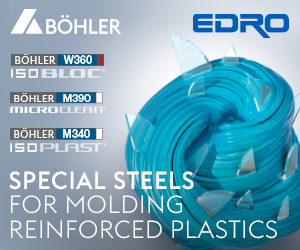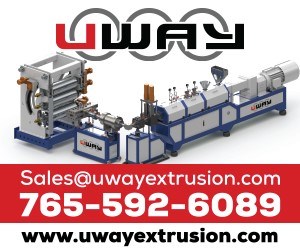Materials: LCPs Prove to be Material of Choice for Fine-Pitch Electrical Connectors
Two new high-flow, low-warpage LCP formulations from Sumitomo Chemical are key to achieving today’s thinner, smaller, higher-density interconnects.
Sumitomo Chemical Advanced Technologies LLC, Phoenix, Ariz., has developed two new SumikaSuper LCP grades specifically designed to meet the challenging requirements of fine-pitch connector, where LCPs are gaining ground.
Fine-pitch connectors are a newer type of interconnect useful in the design of printed-circuit boards (PCBs) where space is limited and small centerline or pitch spacing makes larger wire-to-board interconnects impractical. They tend to provide ultra-fine pitch spacing (0.2 to 0.3 mm), are smaller and thinner than traditional connectors, and are optimized for lower profile stack heights (down to 1 mm) but higher stacking density than conventional connectors. Additionally, these high-density connectors must be rugged, reliable, and affordable, must provide high thermal and chemical resistance to survive surface-mount processing conditions as well as to operate in compact devices with less space to dissipate heat. The new SumikaSuper LCP grades for fine-pitch connectors offer excellent processability and low warpage in very-thin wall sections to accurately mold the thin, light, small interconnects and through holes.
SumikaSuper SZ6505HF, which provides higher flow for parts with thicknesses at or above 0.10 mm, and SumikaSuper SR2506, which provides higher flow for parts with thicknesses at or below 0.08 mm —reportedly provide a number of benefits vs. standard grades of LCPs in the same chemistry. For example, they exhibit improved injection molding processability in thin walls (injection pressure vs. filling ratio, flow length vs. thickness, and temperature vs. viscosity). In fact, both new grades are said to have set new standards for flowability and processability vs. polyester-based LCPs in the global market. They also are less prone to warpage in thin walls than standard grades of LCP.
Sumitomo Chemical can offer a suitable LCP grade depending on the design and thickness requirements of a given connector. The company has been producing polyester-based LCPs since 1972 and provides dozens of compounds as well as alloys with other high-performance thermoplastics like PES to meet a wide range of mechanical and thermal requirements (from 260C/500F to 360C/680F).
Related Content
-
Prices of Volume Resins Drop
Price relief is expected to continue through the fourth quarter for nine major commodity and engineering resins, driven by widespread supply/demand imbalances.
-
Melt Flow Rate Testing–Part 1
Though often criticized, MFR is a very good gauge of the relative average molecular weight of the polymer. Since molecular weight (MW) is the driving force behind performance in polymers, it turns out to be a very useful number.
-
What is the Allowable Moisture Content in Nylons? It Depends (Part 1)
A lot of the nylon that is processed is filled or reinforced, but the data sheets generally don’t account for this, making drying recommendations confusing. Here’s what you need to know.












